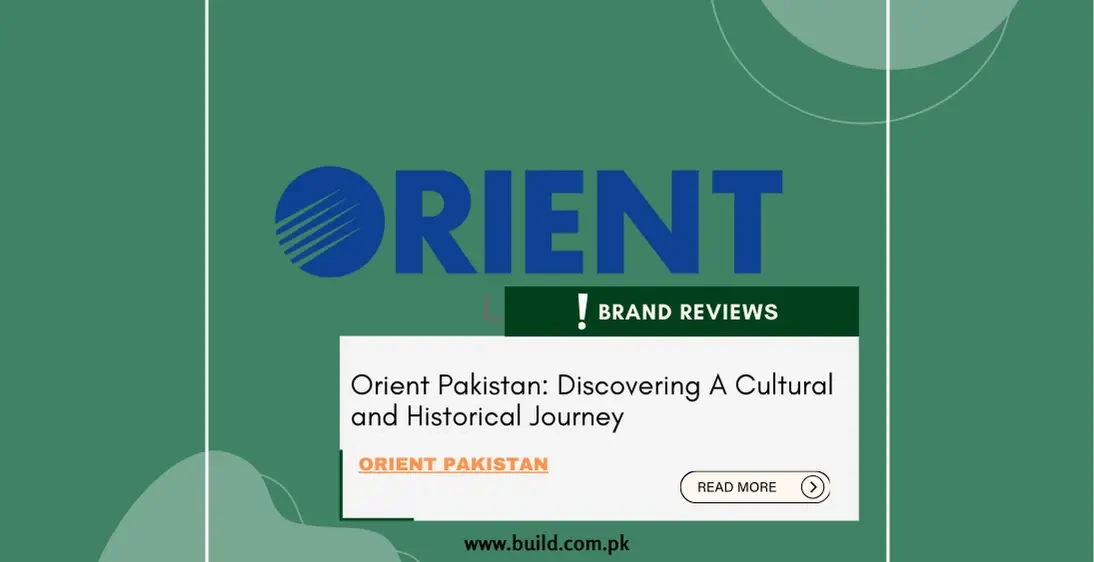Orient Pakistan: Discovering A Cultural and Historical Journey

Introduction;
Pakistan,
with its vibrant tapestry of cultures and traditions, reflects a rich
amalgamation of influences from the Orient. This intricate fusion has shaped
the country's identity, contributing to its diverse arts, cuisine,
architecture, and societal norms. Delving into Orient Pakistan unveils a
journey through time, exploring the profound impact of Oriental heritage on
this dynamic nation.
Historical Background of Orient Pakistan:
The
concept of Orient in Pakistan traces back centuries, rooted in historical
interactions between South Asia and the Orient, encompassing regions such as
Central Asia, China, and the Middle East. These interactions brought forth a
blending of philosophies, languages, and artistic expressions that continue to
resonate in Pakistani culture today. The Silk Road, for instance, facilitated
trade and cultural exchange, leaving indelible marks on Pakistan's artistic and
commercial landscapes.
Cultural Significance of Orient Pakistan:
Orient
Pakistan embodies a fusion of diverse cultural elements, influencing various
facets of life. Oriental traditions have profoundly shaped Pakistani cuisine,
with aromatic spices and culinary techniques reflecting influences from
Persian, Turkish, and Central Asian cuisines. Similarly, music and literature
in Pakistan bear traces of Oriental melodies and poetic forms, creating a
unique cultural synthesis admired worldwide.
Exploring Traditional Arts and Crafts:
Traditional
arts and crafts in Pakistan, deeply rooted in Oriental aesthetics, showcase
exquisite craftsmanship passed down through generations. From intricate pottery
and ceramics to vibrant textiles and intricate woodwork, artisans across
Pakistan preserve and innovate upon Oriental techniques, contributing to a
flourishing artisanal culture.
Orient Pakistan in Modern Context:
In
contemporary Pakistan, Oriental influences resonate in modern expressions of
art, fashion, and design. Pakistani designers blend traditional motifs and
fabrics with contemporary styles, creating fusion wear that celebrates cultural
heritage while appealing to global tastes. This dynamic fusion is also evident
in architecture, where Oriental-inspired designs harmoniously coexist with
modern structures, reflecting a seamless blend of past and present.
Tourism and Heritage Sites:
Pakistan's
architectural marvels stand as testaments to its Oriental heritage. From the
Mughal-era forts and mosques in Lahore and Islamabad to the ancient Buddhist
sites in Taxila and the cultural hub of Multan, each site tells a story of
cultural exchange and artistic brilliance. Preserving these heritage sites is
crucial not only for tourism but also for understanding Pakistan's historical
ties with the Orient.
Culinary Delights of Orient Pakistan:
Pakistan's
culinary landscape is a treasure trove of Oriental flavors and techniques.
Dishes like biryani, kebabs, and naan reflect the influence of Persian and
Central Asian cuisines, while beverages like Kashmiri chai and falooda offer a
refreshing taste of Oriental culinary traditions. The diversity of flavors and
ingredients underscores Pakistan's role as a culinary crossroads of the Orient.
Celebrating Festivals and Traditions:
Festivals
in Pakistan are vibrant celebrations that reflect the nation's cultural
diversity and Oriental influences. Eid-ul-Fitr and Eid-ul-Adha are joyous
occasions marked by feasting and communal prayers, while Basant heralds the
arrival of spring with kite-flying festivities. These festivals not only
celebrate religious and seasonal milestones but also foster unity and cultural
exchange among diverse communities.
Orient Pakistan in Global Perspective:
Pakistan's
contributions to promoting Oriental culture on the global stage are
significant. Through cultural diplomacy, educational exchanges, and artistic
collaborations, Pakistan continues to showcase its rich heritage and foster
mutual understanding with Oriental nations. This global engagement reinforces
Pakistan's position as a cultural bridge between East and West, celebrating diversity
while forging lasting partnerships.
Conclusion:
Orient Pakistan embodies a mosaic of cultures, traditions, and artistic expressions that have shaped its identity over centuries. From ancient trade routes to modern-day collaborations, Oriental influences continue to enrich Pakistan's cultural tapestry, offering a glimpse into a dynamic nation where past and present converge harmoniously.









